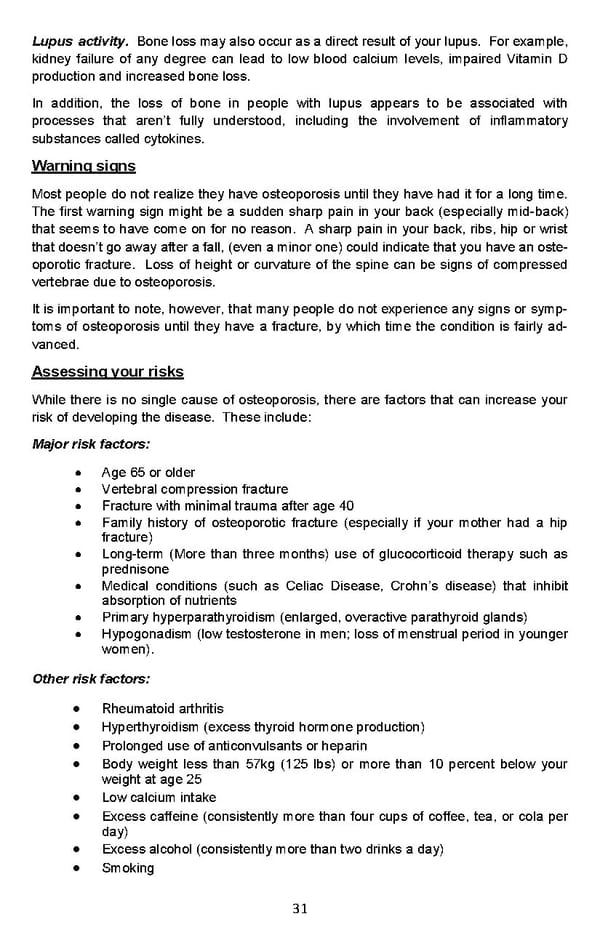Lupus activity. Bone loss may also occur as a direct result of your lupus. For example, kidney failure of any degree can lead to low blood calcium levels, impaired Vitamin D production and increased bone loss. In addition, the loss of bone in people with lupus appears to be associated with processes that aren’t fully understood, including the involvement of inflammatory substances called cytokines. Warning signs Most people do not realize they have osteoporosis until they have had it for a long time. The first warning sign might be a sudden sharp pain in your back (especially mid-back) that seems to have come on for no reason. A sharp pain in your back, ribs, hip or wrist that doesn’t go away after a fall, (even a minor one) could indicate that you have an oste- oporotic fracture. Loss of height or curvature of the spine can be signs of compressed vertebrae due to osteoporosis. It is important to note, however, that many people do not experience any signs or symp- toms of osteoporosis until they have a fracture, by which time the condition is fairly ad- vanced. Assessing your risks While there is no single cause of osteoporosis, there are factors that can increase your risk of developing the disease. These include: Major risk factors: • Age 65 or older • Vertebral compression fracture • Fracture with minimal trauma after age 40 • Family history of osteoporotic fracture (especially if your mother had a hip fracture) • Long-term (More than three months) use of glucocorticoid therapy such as prednisone • Medical conditions (such as Celiac Disease, Crohn’s disease) that inhibit absorption of nutrients • Primary hyperparathyroidism (enlarged, overactive parathyroid glands) • Hypogonadism (low testosterone in men; loss of menstrual period in younger women). Other risk factors: • Rheumatoid arthritis • Hyperthyroidism (excess thyroid hormone production) • Prolonged use of anticonvulsants or heparin • Body weight less than 57kg (125 lbs) or more than 10 percent below your weight at age 25 • Low calcium intake • Excess caffeine (consistently more than four cups of coffee, tea, or cola per day) • Excess alcohol (consistently more than two drinks a day) • Smoking 31
 Living Well With Lupus Facts Booklet Page 30 Page 32
Living Well With Lupus Facts Booklet Page 30 Page 32